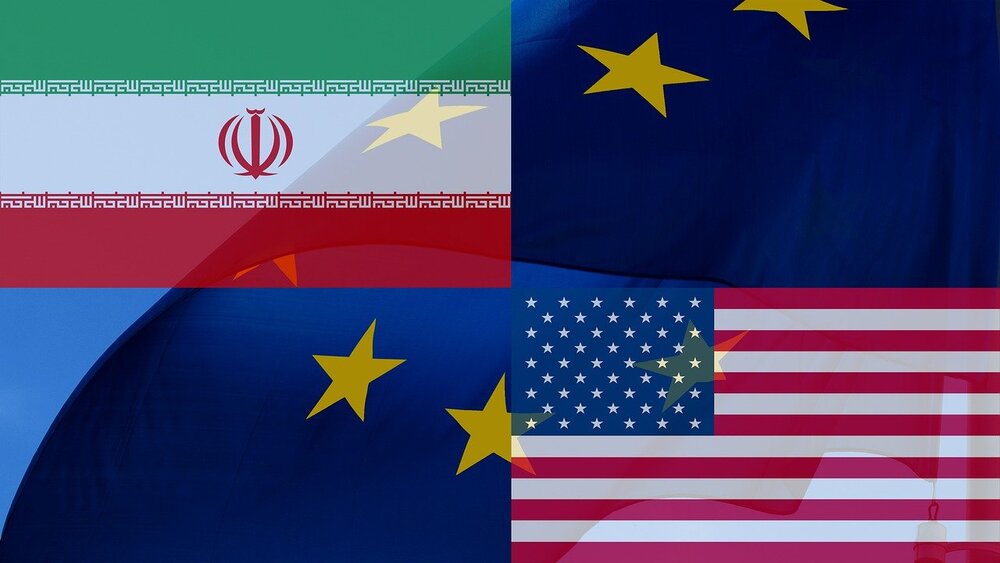Western media should reserve judgments on JCPOA for now

TEHRAN— As both Tehran and Washington are busy reviewing a proposed draft put on the negotiation table by the European Union, the Western media is busy doing what it always does: early judgment.
Iranian Foreign Minister Hossein Amir Abdollahian and EU foreign policy chief Josep Borrell exchanged views over the latest developments surrounding the sanctions-removal talks during a phone conversation on Wednesday evening.
Amir Abdollahian reportedly thanked Borrell and his deputy Enrique Mora for their efforts and said there is no doubt that Iran is determined to reach a good, robust and lasting deal.
Iran’s top diplomat noted that if the United States moves realistically toward finding a solution and reaching a deal, a good agreement will be at hand for all parties.
According to Amir Abdollahian, Tehran has shown good faith and serious determination to reach a deal since the beginning of the talks.
He then brought up the topic of the draft proposed recently by Borrell, underscoring that Iran welcomes the continuation of diplomacy.
The Iranian foreign minister said the U.S. has always claimed that it wants a deal, so this must exist in the wording of the agreement and also in practice.
For his part, Borrell said the Iranian side has so far shown positive and serious determination during the negotiations and time is now that the talks produce good results, according to the Iranian foreign ministry readout.
Borrell once again declared that he and his deputy are ready to facilitate and speed up this trend through communications and consultations with all parties.
Meanwhile, an Elysee Palace official said on Thursday that there is still time to save the 2015 Iran nuclear deal, but the ball remains in Tehran's court, Reuters reported.
This came ahead of talks between Emmanuel Macron and Saudi Crown Prince Mohammed bin Salman.
However, Laurence Norman, a Wall Street Journal correspondent had an entirely different opinion.
“What is written above is nonsense. There has been zero progress in last couple of weeks. If anything, we are now further from possibility of talks resuming than two weeks ago,” Norman said on Twitter on Friday.
While the U.S. State Department spokesperson Ned Price said on Tuesday night that the White House is reviewing the draft.
The Wall Street Journal staff seem to have gotten into the old habit of early judgment.
“What I can say is that we are reviewing the draft understanding on mutual return to full implementation with the JCPOA that the high representative shared with us, as well as with Iran and the other JCPOA participants. We will share reactions we have directly with the EU,” Price told a news briefing late Tuesday.
Price went on to note that the EU draft is based on the draft which was written in March.
“We understand that this new text that Mr. Borrell referred to, it’s the basis for – its basis is that draft that has been on the table since March. We are studying the changes that have been proposed by the EU; we’ll respond to them in short order,” he added.
Nevertheless, the Wall Street Journal has openly welcomed the failure of the talks.
In an opinion piece on July 25, Walter Russell Mead, the James Clarke Chace professor of foreign affairs and humanities at Bard College and editor at large for The American Interest, also compared the JCPOA to Schrodinger’s cat.
“No matter what you call it, the Joint Comprehensive Plan of Action—JCPOA for short or “Iran nuclear deal” for convenience—is in trouble. Since Donald Trump pulled the U.S. out of Barack Obama’s agreement that ended economic sanctions on Iran in exchange for temporary limits on Iran’s nuclear activities, the deal has been the Schrodinger’s cat of diplomacy—sealed in a box, neither dead nor alive but in some indeterminate state,” he wrote in the article titled “The Iran Nuclear Deal’s Convulsive Death”.
Schrodinger’s cat, which is named after the scientist who experimented the hypothesis, is a hypothetical cat in a box that may be considered simultaneously both alive and dead as a result of its fate being linked to a random subatomic event that may or may not occur.
This comes as Tehran and Washington have had “constructive exchanges” over the past week, according to Iran’s top negotiator Ali Bagheri Kani.
“Had serious and constructive exchanges with other sides in the course of the past week on Vienna negotiations. The Coordinator has shared his ideas to conclude the negotiations. We, too, have our own ideas, both in substance and form, to conclude the negotiations which would be shared,” Bagheri Kani tweeted late on Tuesday.
There is no doubt that critical days are ahead of Tehran and Washington in the negotiations. The fate of Schrodinger’s cat cannot be decided now, unlike what the U.S. media is trying to portray. Early judgments will further complicate the negotiations.
